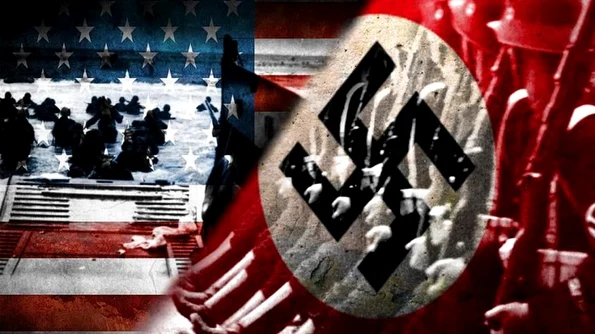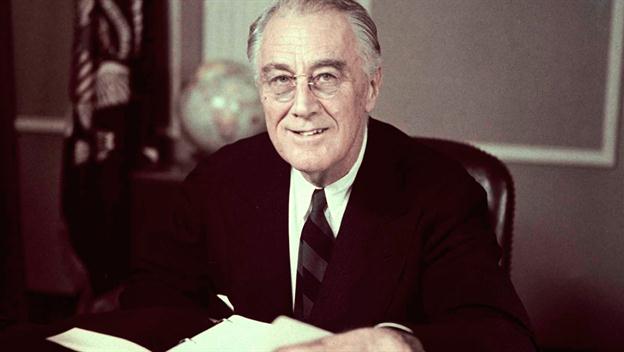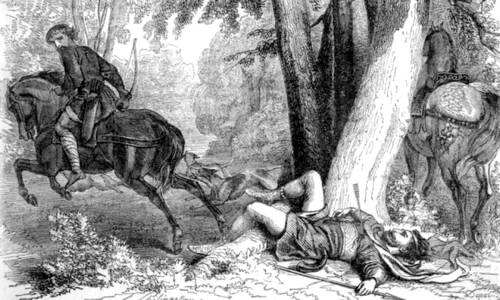
The US and Nazi Germany
Before the very important year of 1933 – when the NSDAP ascended to power and afterwards, Germany gradually became a totalitarian state-Weimar Germany and the United States of America enjoyed the closest relations two Great Powers ever had. Despite Washington’s isolation and neutrality, it was very much inclined to aid Berlin financially and politically. This way, although Europe was lacking the American input and the underscoring of the new European Order, Germany capitalized and thrived on it.
The Dawes and the Young Plans both managed to reduce the amount of money Weimar Germany had to pay as reparations to France especially. They went as far as to effectively end the Reich’s debt in 1932 at the Lausanne Conference when the Americans – impressed with the effects the Great Depression seemed to have on Berlin-pushed both the UK and France to give up their financial expectations.
Thus, when Hitler and the NSDAP came to power, they had no restrictions whereas the budget was concerned in the sense that no other state or international organization supervised where the money actually went as it was done before 1932. However, this situation was obvious even to the last German Chancellors of the Weimar Republic. The Army pushed for a new rearmament plan and the political leadership granted the military this favour, since they wished for their state to become equal in military power, influence and prestige to the UK and France or even Italy. These countries did not have to deal with a situation which was interpreted in Berlin as outside limitations of their power, as a result of the Versailles treaty.
Moreover, until 1933, the German Foreign Minister – Gustav Stresemann – realized that it was imperative that Berlin constructed a special transatlantic relation with Washington, yet his untimely death brought about the end of this policy. When Hitler became Chancellor-and in August 1934 assumed the Head of State position after President Paul von Hindenburg’s death – he gave up thinking of the US as an important state which would, eventually, be able to change power alignments or even the world order. Hitler did not seem to be capable of envisioning a policy which would acknowledge the US as an emerging Great Power.
Yet, at the time, Hitler’s image of the US was very much justified. The Great Depression effectively ended any kind of influence Washington had in the world, since its political leaders focused inwardly on remaking the American economy. When Roosevelt began his first 100 days in the office and started thinking and implementing the New Deal Policy, Hitler was making his first moves in order to transform Germany into a totalitarian state. Thus, while Germany was steadily, but effectively engaging on a risky path, the US was trying to revive its economy by injecting money into it in a Keynesian style, in order to keep together its democratic society. When the US would gather again the power to be a pivot in International Relations and to be able to actually influence world politics, Germany became the unstoppable juggernaut of Europe. Washington’s return to global politics could not peacefully stop Berlin’s ascension.
Even before he came in the office, Roosevelt knew that he would have to deal with a powerful and menacing state. Unlike the people that elected him, FDR was very much aware of the danger that Germany posed to the American security both territorially, politically and ideologically. The Americans refused to see past what was labelled as “strategic invulnerability” until the moment when Nazi Germany appeared very close to the southern Rio Grande border:Berlin seemed to assume control of the economy of every South American state which fell, naturally, in the United States’ sphere of influence.
Yet, what was so wrong with Germany that made Roosevelt think even before 1933 that Berlin would eventually go to war? The Reich’s evolution turned the German regime into the exact opposite of the American one. It seemed to challenge everything Washington stood for:constant disregard and violation of the human rights, discrimination, racism (even though the Americans had a so-to-say mild version for the African Americans);disregard for the established norms of International Relations and the extensive use of aggression and ignorance of the auto determination principle, totalitarian power and ideology;aggressive economic practices and the refusal to pay the debts to the American creditors contracted under the Dawes and Young plans. Furthermore, the German American Bund which was an organization on the fringes of the American political scene scared the Americans into thinking that the Nazis were also a menace from the inside to the democratic regime the forefathers built in the US.
Roosevelt especially, but also Hull and the other democrat politicians thought of their country as an arsenal of democracy which would not only materially aid the UK or France in a war against Nazism, but also would keep alive and untouched the idea of democracy. The American leaders eventually thought of their country as the ultimate place of democracy, the very essence of liberty and freedom. “We" Roosevelt urged, "must be the great arsenal of democracy. For us this is an emergency as serious as war itself. We must apply ourselves to our task with the same resolution, the same sense of urgency, the same spirit of patriotism and sacrifice as we would show were we at war”[1].

In a telegram from Washington, the German Charge d’Affaires Thomsen acknowledged the fact that it was clear that FDR was fighting for the democratic ideals with the same ideological zeal as Hitler for his objectives. Moreover, for Hitler, it was clear that Roosevelt had transformed into his archenemy:they were both fighting for world hegemony. Yet, in Hitler’s mind, this fighting would come to a head only when Germany reached continental hegemony in Europe. Only when the later Fortress Europe (built on the model of the US) would be achieved, could the Greater German Reich be able to face the US in a hegemonic war which would determine the ultimate ruler of the Earth. This was, of course, Hitler’s twisted vision of Germany as a Great Power, yet historian MacGregor Knox ponders that the Chancellor was very close to fulfilling his dream as stated in his Second Book-„Deutschland wird entweder Weltmacht oder überhaupt nicht sein”[2](Germany either becomes a Great Power or ceases to exist completely).
Yet, what strikes the students of the relation between Germany and the US in the 1930s is the fact that Hitler disregarded the States almost completely as power factor in his military, strategic and political plans. Thus, the German historian Gerhard L Weinberg concludes that „the underestimation of the United States can be seen to have reduced German caution in the 1930's and distorted German military estimates in the 1940's”[3].

So blinded were Hitler and the Nazis by their ideology that they thought Germany would eventually overcome the combined power of the UK, France, USA and also, the USSR in a future war. Thus, it could only be possible to “reason” with them by effectively destroying their power base and regime. FDR declared that “The Nazi masters of Germany have made it clear that they intend not only to dominate all life and thought in their own country, but also to enslave the whole of Europe, and then use the resources of Europe to dominate the world.” Negotiating with such a danger was patently pointless. “The experience of the past twoyears, ” he continued, “has proven beyonddoubt that no nation can appease Nazis. No man can tame a tiger intoa kitten by stroking it. There can be no appeasement with ruthlessness.There can be no reasoning with an incendiary bomb. We know now that anation can have peace with the Nazis only at the price of total surrender.”[4]
The German American relation has undergone a total restructuring after the Nazi regime was annihilated, the country divided between the Soviets and the West and the German regime transformed by the Americans into a democratic one. It seems that only the total destruction of the Nazism and its political implementation was able to revive the special transatlantic relation between Germany and the US.
[1]Robert Dallek, Franklin D. Roosevelt and American Foreign Policy, 1932 – 1945, With a New Afterword, Oxford University Press, New York, USA, 1995, p. 257
[2]Andreas Hillgruber, Deutsche Großmacht-und Weltpolitik im 19. und 20. Jahrhundert, 2. Auflage, Droste Verlag GmbH, Düsseldorf, Deutschland, 1979, p. 198
[3]Gerhard L Weinberg, „Hitler’s Image of the US”, The American Historical Review, Volume 69, Number 4, July 1964, p. 1021
[4]Steven Casey, Cautious Crusade:Franklin D. Roosevelt, American Public Opinion and the War Against Nazi Germany, Oxford University Press, New York, USA, 2001, p. 38















